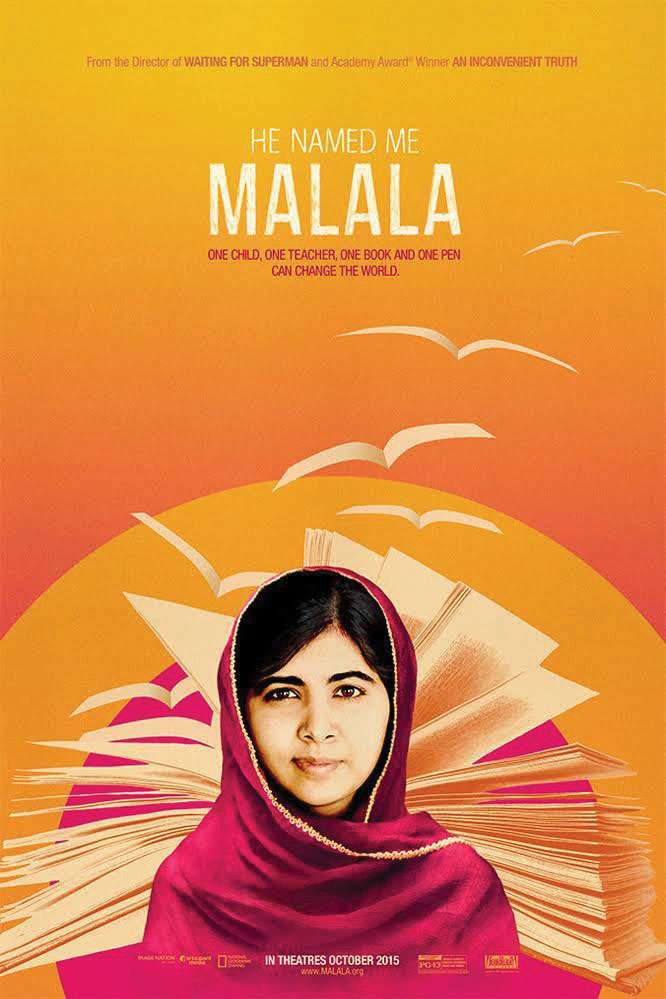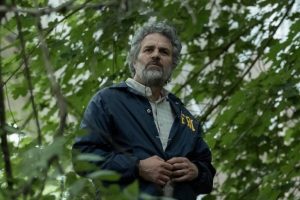 Heading in to watch the documentary He Named Me Malala, I expected to be moved. After all, what isn’t moving about Malala Yousafzai’s life story? Recruited at 12 years old to blog anonymously for the BBC, she reported on the growing power of the Taliban in Pakistan’s Swat Valley, where she lived. When the Taliban’s leader declared it was un-Islamic for girls to be educated, she continued to attend school and began speaking publicly against the fundamentalist movement. When she was 15, a Taliban gunman shot her in the head in an attempted assassination. She received the Nobel Peace Prize in 2014.
Heading in to watch the documentary He Named Me Malala, I expected to be moved. After all, what isn’t moving about Malala Yousafzai’s life story? Recruited at 12 years old to blog anonymously for the BBC, she reported on the growing power of the Taliban in Pakistan’s Swat Valley, where she lived. When the Taliban’s leader declared it was un-Islamic for girls to be educated, she continued to attend school and began speaking publicly against the fundamentalist movement. When she was 15, a Taliban gunman shot her in the head in an attempted assassination. She received the Nobel Peace Prize in 2014.
Given the familiarity of Malala’s story, I didn’t expect to be surprised by Davis Guggenheim’s documentary. Some of it does feel like a highlight reel: Malala meets Queen Elizabeth! Malala goes on The Daily Show with Jon Stewart! But when the film focuses on her family life rather than her public persona, it becomes much more interesting. Malala has a surprisingly complicated relationship with her parents. She lionizes her father, who founded a coeducational school and is a critic of the Taliban. She has a less favorable view of her mother, who, as Malala contemptuously explains, left school at the age of 6 after selling her school books for candy. Malala plainly concludes that because of this, her mother is not a free person. Ziauddin Yousafzai, Malala’s father, promotes education for girls, but he is haunted by guilt and wonders if he should have curbed Malala’s public speaking.
Now at age 18, Malala Yousafzai has experienced more pain and joy in her young life than people decades older than her ever will. But her life story isn’t well-served crammed into a 90-minute documentary. Instead, see He Named Me Malala to better understand the relationship between an inspiring young activist and her complex, remarkable family.
This review appeared in the December 2015 issue of U.S. Catholic (Vol. 80, No. 12, page 40).












Add comment